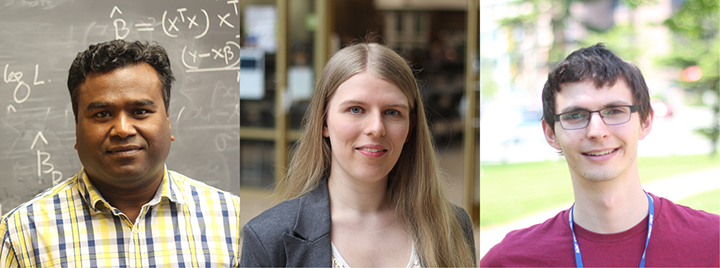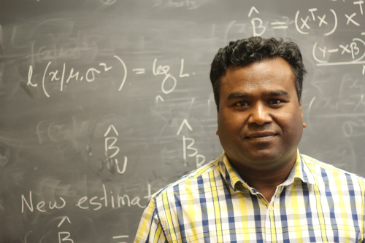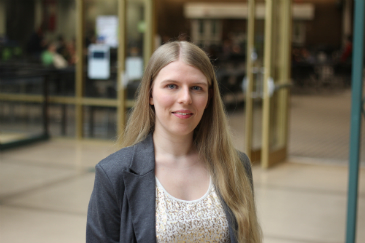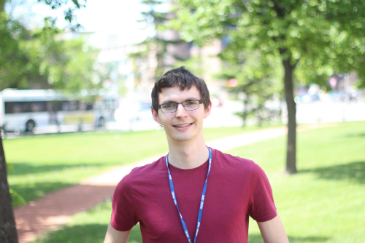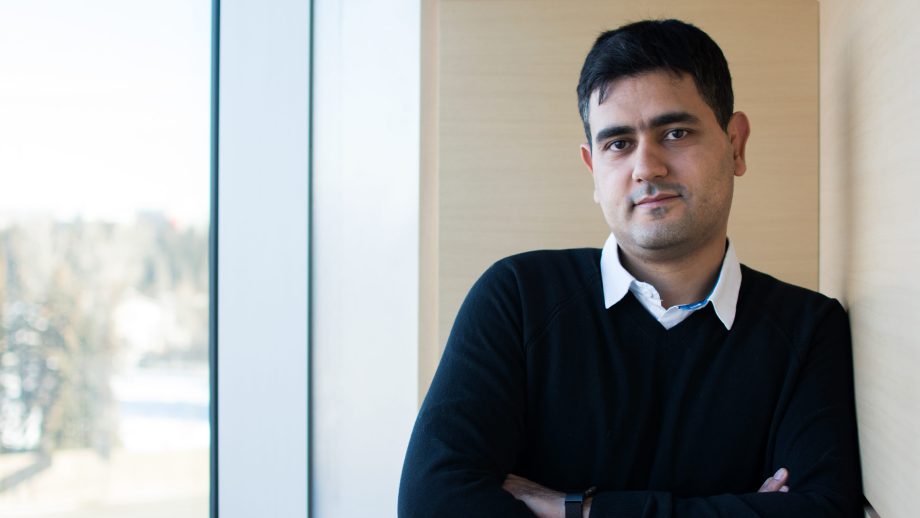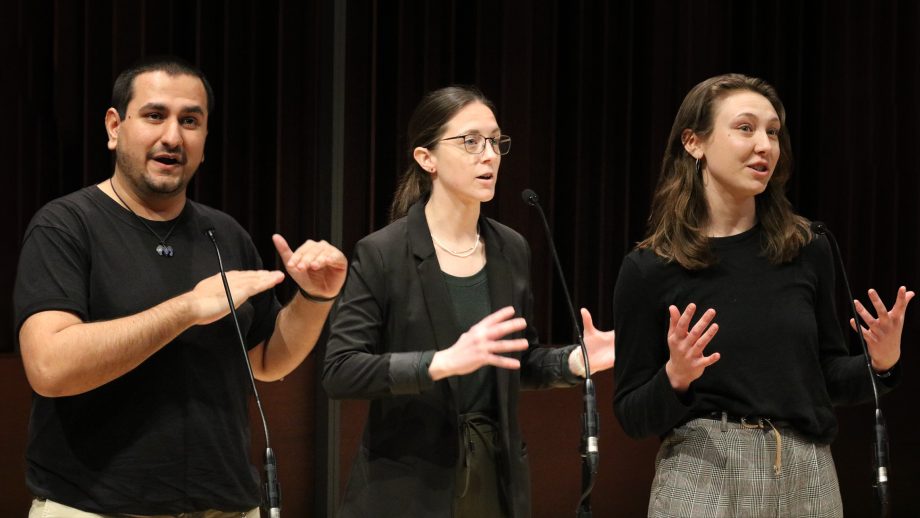Mathematics is the science of number, form, and logic. At its most fundamental level, mathematics is a way of thinking. Mathematics may be the oldest of the sciences, but it is a constantly growing field. Evolving theories and the demands of new and varied applications continually effect change throughout mathematics.
The study of statistics is concerned with the collection, analysis, and interpretation of data. Statistical techniques are applied extensively in virtually every branch of the physical, social, biological, and human sciences.
UWinnipeg offers 3-year and 4-year degree programs in both mathematics and statistics. Math grads find employment in areas related to finance, business, computers, insurance, engineering, physics, economics, and others. Statisticians work with specialists in a wide variety of fields, from economics and medical research to agriculture, climatology, marketing, geography, and more. Many also find careers with private corporations and government agencies.
Associate Prof: Dr. Shakhawat Hossain
AIDING DISEASE PREVENTION
For Dr. Shakhawat Hossain, the power of statistics lies in its ability to cut through complex — even life threatening— problems. Hossain uses statistical modeling and other inference methods for different types of data to reduce complexity without compromising the important information that can help solve real world issues. Currently, his research methods are being used to identify the risk factors for the spread of dengue fever — a debilitating, mosquito-borne disease — in Dhaka, Bangladesh.
“Recently, I applied these methods to identify the epidemiological, demographic, socioeconomic, and sociocultural risk factors for dengue fever transmission,” explains Hossain. “These statistical methods can also be applied to identify risk factors that are related to spreading the Zika virus. Using the statistical inferences, specific policy interventions for dengue and Zika virus control can be developed to help stop the spread of the disease.”
Student: Sarah Campbell
PUZZLING INVESTIGATION
In her fifth year at UWinnipeg and completing a double major in math and physics, Sarah Campbell is solving puzzles — with a puzzle. This summer she will be investigating the jeu de taquin algorithm, which many people know as a number game that involves sliding 15 tiles into place. The jeu de taquin algorithm has been used to prove many important theorems in mathematics, and Campbell hopes to discover more.
“I like numbers a lot,” shares Campbell. “Math is the language of physics. You can prove things with math using a variety of different methods and ideas. Beyond its many applications, studying mathematics teaches you to think logically and to develop problem solving skills.”
Campbell also appreciates her UWinnipeg experience: “I like The University of Winnipeg because of the small class sizes, the location, and the short walking distance between buildings on campus.”
Alumnus: Adam Borchert
FOR THE LOVE OF NUMBERS
“Math is really beautiful,” shares Borchert. “It’s hard not to fall in love with it. It has such an elegant purity that you just don’t find anywhere else.”
Borchert is currently working as a Machine Learning Software Developer at Sightline Innovations, where he collaborates with engineers to solve problems using machine learning, commonly known as artificial intelligence. Once a client’s need is determined, Borchert develops and implements machine learning algorithms to address it. One of his current projects uses math to improve quality control of cement pouring for a national construction company.
Borchert says that the pure math program is exceptional at UWinnipeg. “The faculty is some of the best in the country, and I also had a lot of opportunities to do research starting early in my degree, which is uncommon at larger universities.”
See more Spotlight features here.

